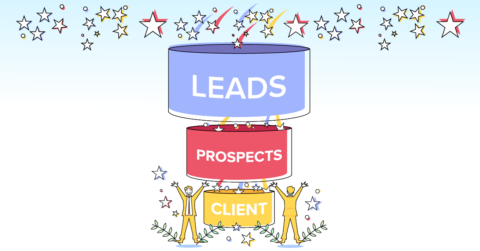
Lúgh Studio’s Ultimate Guide to SEO
06/09/21
digital design
In our ultimate guide to SEO, we give you everything you need to know to drive more traffic to your website.
SEO, or search engine optimization, is one of the fundamental pillars to a successful digital marketing strategy.
It brings in more customers and prevents you from disappearing in the billions of pages of internet content.
In Lugh Studio’s ultimate guide to SEO, I’ll be sharing why SEO is so important, the main tactics you need to implement, as well as some future trends to keep an eye out for.
Let’s get started.
What Is SEO?
Let’s first start with a description. SEO, according to Backlinko, is “the practice of getting targeted traffic to a website from a search engine’s organic rankings.”
An even shorter definition?
SEO is how you get people on the internet to find you.
A good way to conceptualize how SEO works is a library full of books.
The internet as a whole is a library, and all of the billions of pages are books. SEO is how you get your audience to find your books!
Check out this full analogy at Google.

Of course, SEO is more complex than that, and isn’t only considered one thing. There are different kinds, which you can read about here.
Two of these SEO types are on-page and off-page. It’s important to understand and optimize both for a well-rounded strategy, so we will cover tactics for both types. That said, if you’re going to focus your time on anything, I suggest becoming a master at on-page, as this is the area you have most control over.
It’s also important to understand that SEO mostly focuses on Google. While other search engines have their place, Google is by far the most important. In fact, it’s not just that Google has the most amount of searches…it’s that Google completely dominates! Over 90 percent of searches happen on the platform.
In practice, that means that your SEO efforts of getting people on the internet to find you is more like getting people on Google to find you.
That said, SEO works similarly on all search engines.
Why Is SEO Important?
Let’s dive a bit deeper into the fundamental reasons SEO is so essential to master. To do that it’s helpful to first understand how the modern consumer acts on the internet.
When somebody has a problem, the first thing they often do is “Google it.” In a world of information overload, they want answers, and they want them fast.
This information seeking behavior is fundamental to understanding where SEO fits into your business plan.
The fact is, most of the traffic you ever get is often organic. That means that instead of clicking on a paid ad or typing your website’s name directly into their browser, people will often “accidently” find you.
They will Google “best organic dog food,” and if you are a business specializing in organic dog food that has an SEO strategy in place, there is a chance they will see you on the first page of their search results.
As you can see, good SEO means more traffic.
And as for the importance of traffic? Well, your website doesn’t really mean anything if nobody ever finds it.
SEO is a fundamental part of building an audience, generating leads, growing your email list, and profiting from your online presence. If you have any intention of engaging in any of these marketing strategies, SEO is the glue that holds it all together
Could you just pay for traffic? Yes, of course. And oftentimes, paid traffic can and should be a part of your advertising strategy.
But while there are benefits to both, SEO is a much better long-term plan. Paid ads can bring in targeted traffic, but only work if you are putting in a constant stream of money. SEO, meanwhile, is the “gift that keeps on giving.”
That’s because good SEO operates on a system similar to compound interest: it often gets better over time.
The more SEO-optimized content you create, the more people find you on Google, the higher your domain authority becomes, and the higher you rank at the beginning for every piece of content you create afterwards.
It’s a pretty great snowball for traffic to your website!
Main Principles of SEO
Now that we understand what SEO is and why it’s important, we’ll cover main principles.
Treat this section as your “30,000 foot view” of overall strategy before we dive into more specific tactics.
1) Focus on user experience.
The first thing to know is the importance of serving your audience. SEO isn’t just about doing whatever you can to be found on search engines. That view sounds far too similar to “black hat strategies,” which you should never be pursuing.
Rather, SEO is a bit more nuanced: making the user experience on your website as valuable and enjoyable as you possibly can, and through this quality, being found on search engines as a result.
A subtle shift in thinking – but an important one.
When it comes to SEO, ask yourself if any action you want to take would benefit somebody on your website.
If the answer is “no,” don’t do it.
Simple as that.

2) The three most important values Google uses to judge your SEO.
Next, let’s cover the three values that Google prioritizes over all else in SEO.
These are authority, relevance, and trust. I encourage you to check out these pillars in detail, but I’ll summarize all three here: good SEO is all about demonstrating to Google that you are a high quality resource in your niche.
While there are certainly algorithm updates (which we will cover in the next section) that you need to pay attention to, the most important tenets of SEO are actually somewhat simple.
Know what you are talking about, make content people are actually searching for, and treat your online visitors with the respect they deserve.
3) Quality over quantity.
I’ve already mentioned several times that SEO is all about getting found and driving more traffic to your website.
This is strictly true, as more traffic for your website is almost always a good thing.
But don’t confuse quantity with quality. The fact is, if every month you are bringing in 5 million website visitors who have no intention of ever buying from you or becoming a lead that you can market to, your traffic is simply a vanity metric. You want targeted traffic, not just random people.
To understand the difference, check out our post on funnels.
4) Don’t do anything stupid.
SEO is a game where it pays to follow the rules.
It wasn’t always this way. Back in the early days of the internet, you could simply take your piece of content and jam it full of your target keyword (called keyword stuffing) and you had a good chance of ranking on the first page.
Not anymore!
Google is getting increasingly more sophisticated, and will almost certainly “find out” if you do anything that is either illegal or harmful to user experience for the sake of ranking.
That said, don’t worry too much about this. Make great content and follow common sense and you should be fine. If you’re interested in learning more about this topic, read this article on the differences between black hat and white hat SEO.
Main Tactics of SEO
Let’s move onto the main tactics for SEO. These are the main things you need to act upon if you want to be successful with your SEO efforts.
I will give you your tactics in order of overall importance.
That doesn’t mean that you should only focus on number one. Rather, if you have limited time and resources, you know where to prioritize your efforts!
1) Content.
Good content marketing is considered by many marketers to be the most important factor for most sites.
And not just average content that fills your website, but 10X content that is substantially better than whatever is already out there.
This kind of content that both solves problems and is entertaining to consume is what will engage people on your website and bring in ever more visitors.
Plus, remember this: it’s not enough to simply create content. There is a certain structure that your online content should take. This structure both makes it easier for your audience to interact with your content and signals to search engines what topics you have covered.
While these are more technical aspects, you ignore them at your own peril. Check out this resource for more information.
Want to become a content master? Check out our ultimate guide to content marketing.

2) Keyword research.
Directly connected to good content is the process of keyword research. The importance of keyword research is that it’s the closest you will ever get to guaranteeing content success.
What it boils down to is this: you need to make sure that whatever content you are creating (whether blog posts, videos, podcasts, or any other format) is content that your audience is actually looking for.
There needs to be demand, and keyword research is how you ensure that that demand actually exists.
There are many keyword research tools you can use, as well as different methods for organizing all of your data into an actionable plan of content creation.
Check out this resource for more information.
3) Backlinks
The last SEO tactic you need to consider involves backlinks. This is often considered one of the ranking factors that you have least control over, which is why it’s considered “off page.”
Backlinks, which are essentially links from other websites to your own web pages, act as votes of confidence.
Remember how I mentioned in the last section that Google rewards sites with a lot of trust? Backlinks from other sites is how you signal this trust. They show Google that you know what you are talking about and that other, more objective sites find value in whatever it is they are linking to.
While you don’t always have so much control over building backlinks, there are definitely steps you can take to increase your odds of getting them.
The most important thing is to make great content that solves problems, and the second is to build relationships with other websites in your niche.
Follow these three SEO tactics and you will be better off than the majority of business owners who don’t give it so much thought.
SEO In The Future
While SEO has remained relatively consistent over the last 10 years in terms of main tactics (good content that solves problems + links back to your site), there are always changes that you should pay attention to.
These are mostly due to changes in Google’s algorithms which happen quite frequently. After all, Google is a constantly adapting machine whose main goal is to make the user experience as great as it possibly can.
With that in mind, here are two trends to keep in mind to succeed at SEO in the coming years.
1) Search intent matters.
I’ll link to a resource right away if you’ve never heard of “search intent.” It deserves a deep understanding before you make a single piece of content for your website.
Basically, search intent is what the user actually wants when they type in a Google search. Not what their search phrase sounds like, but what they are actually looking for.
This is a nuanced difference, of course, but an important one.
The reasoning goes like this: the way we as humans use language is flawed. We say things we don’t mean, use words with multiple meanings, and are all around imprecise when stating our desires.
Same thing with our Google searches. What we type in might not be an accurate representation of what we are actually looking for!
Thankfully, Google knows us better than we do. Simply run a Google search yourself with the keyword you are trying to rank for and make note of the kinds of results you see.
With how advanced Google algorithms are, this is an accurate representation of the type of content you should be making with that search term.

2) Pay attention to changing formats.
SEO has long been a game of text. This means top search results have usually gone to blog posts, infographics, and anything else you can write.
The future of SEO will look quite different. While there is still a place for text-based content, the preferred format is rapidly changing amongst content consumers.
Because of this, businesses that make place for video and audio content in their marketing strategy will thrive. They will appeal to a wider base of people and in the long run be much more in tune with changing SEO algorithms.
Regardless of how the future of SEO changes, remember one thing that never will: putting people first. Google rewards pages that serve people the best, and likely will only continue to do so.
Create content and websites that people love and you can’t go wrong!
Tools To Use
While this could be a long section with all sorts of tools and software, there are really only two you should know to succeed at SEO: Ahrefs and SEMRush.
These are widely considered to be the top two SEO tools.
They both give you detailed data on monthly keyword search volume, opportunities you might have to build backlinks back to your site, and information on existing content you can update for better SEO results.
These are the main bits of information you need if you are going to maximize your SEO skills.
Of course, feel free to check out other SEO tools for your own unique business. I also suggest you read our post on SEO tools for some more descriptive background of which one might suit you best.
Conclusion
SEO is about more than just getting found on the internet.
It’s about building a website that gives people exactly what they want, turns them into fans of the value you provide, and eventually transforms them into happy paying customers for your brand.
Plus, while SEO can be complicated and technical, you really only need to master a few key things to really start to see results.
Follow this ultimate guide and targeted organic traffic is yours for the taking!
Are you looking for help growing your online business or nonprofit? Give us a shout! We provide a free consultation. Email us at info@lughstudio.com!









